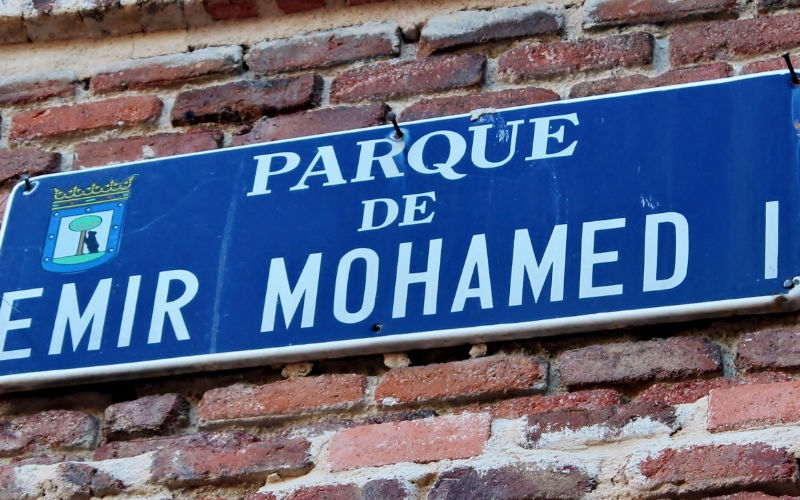Panels, schools, rap: Arabic regains ground in Spain

Al-Andalus or Muslim Spain began in 711 and ended in 1492. Centuries later, Arabic reappears in public and private life.
Cities named "Alfafar", "Algemensi", "Alcàsser" and "Alzira". Spain has preserved sublime vestiges of the Al-Andalus era, including the Arabic language. According to linguists from the Royal Spanish Academy, more than 4,000 Spanish words come from Arabic, which represents about 8% of the current Spanish vocabulary. In Spain, the use of Arabic is developing in everyday life through road signs, school curricula, even local rap. "Spanish citizens of Arab origin are becoming increasingly active and visible in all spheres of society, participating in the cultural sphere as well as in economic and social life, with very positive developments," said Miguel Moro Aguilar, general director of the Hispanic-Arab cultural institute Casa Árabe, in an interview with The New Arab. According to the 2021 census, Arabic is the first language of 1,001,792 people in Spain, or 2.17% of the population.
Many people speak Arabic as a second or third language. This increased visibility has sparked a new interest in learning Arabic among non-native speakers. "I believe that the phenomenon of migration - particularly North African migration to Spain - will inevitably lead to the development of a shared cultural understanding that softens rigid territorial identities," said the Arab linguist, literary critic and poet Fernando Andú Resano. "We have indeed observed a growing interest in learning the Arabic language and knowledge of Arab culture, both from the general public and from institutions and companies," commented Miguel, stressing that this interest is justified by a significant increase in economic and trade relations with North Africa and the Gulf countries.
"Arabic is a language of Spain," declared Más Madrid deputy Jimena González in the Madrid Assembly last month, defending the launch of the Arabic Language and Moroccan Culture Teaching Plan. "Even Isabella the Catholic failed to erase it," she also noted. The Arabic Language and Moroccan Culture Teaching Plan in Spain is a long-standing educational program, sponsored by Morocco and supported by Spain. The initiative aims to teach Arabic and Moroccan culture to children of Moroccan origin.
There is indeed a growing interest in learning Arabic, but Luisa Arvide, professor of Arab and Islamic studies at the University of Almería, believes that the recent influence of Arabic on the Spanish language is limited, as most migrants are Maghrebis and speak their own dialect, darija, very different from modern standard Arabic (fusha). Others speak Amazigh, French or Spanish. For Fernando, "the two languages and cultures - Spanish and Arab, Hispanic and Arab-Islamic - will have to seek each other out and find ways to coexist as harmoniously as possible, understanding each other and recognizing their common aspects".
Related Articles
-

Moroccan Mother and Children Homeless After Controversial Eviction in Ceuta
31 July 2025
-

Highway Heists: Spanish Roads Become Hunting Ground for Cunning Thieves Targeting Tourists
31 July 2025
-

US Tariff Hike Threatens Spanish Olive Oil Dominance in American Market
30 July 2025
-

Barcelona Police Bust Massive International Phone Theft Ring, Seize 1,000+ Stolen Devices
27 July 2025
-

Carrefour Accused of Mislabeling Saharan Tomatoes as Moroccan, Sparking EU Traceability Concerns
25 July 2025